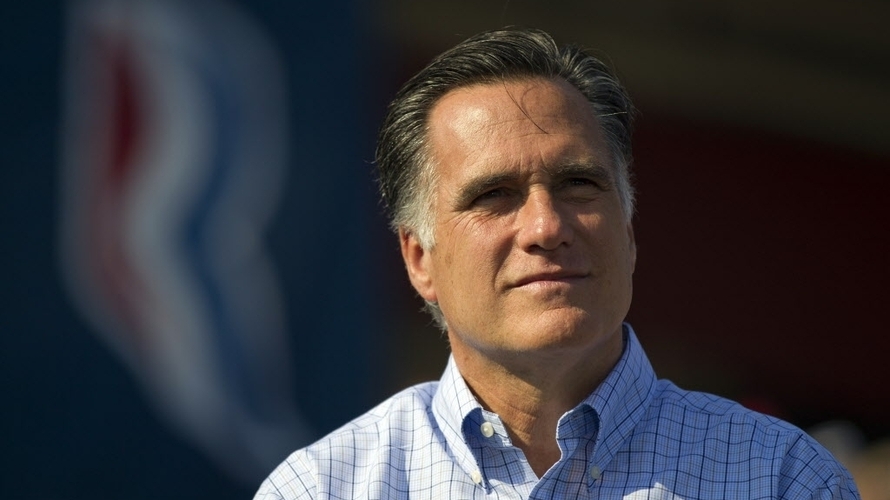
On Oct. 31, in many countries, tens of millions of children will don costumes to celebrate Halloween and go “trick or treating” for candy and other trinkets. Encouraging treats is meant to discourage tricks. And costumes in the United States range from scary Frankenstein monster lookalikes to movie characters and celebrities such as Superman, Hollywood and sports stars and even former U.S. presidents.
Should the Republican candidate for president Mitt Romney celebrate Halloween, using the analogy, will it be trick or treat?
And which costume would he wear?
Given Romney’s penchant for chameleon-like policy wardrobe changes and regarding foreign policy his many zigs and zags that could cause whiplash for the casual observer, the answers to these questions are speculative. And, because some of his top foreign policy advisers steered George W. Bush into catastrophic wars in Iraq and against terror while ignoring the gathering fiscal implosion, voters should be skeptical or cynical about the latest 2.0 or 3.0 version of Romney.
The extraordinary nominating process, however, confronted Romney with a bizarre parade of rivals forcing him to endorse right-wing positions espoused by the Tea Party and other ultra-conservatives whose support had to neutralize the likes of Michele Bachmann and Herman Cain.
Now, tacking to the center for the general election, which President Romney would enter the Oval Office?
In the final debate on foreign policy, Romney agreed far more with President Barack Obama on these issues than he dissented. Key exceptions were his continued unsettling comments about branding China a “currency manipulator” and naming Russia as our number one “geopolitical adversary.”
Still, should he win Nov. 6, will Romney be a treat or a trick in the White House and which costume will he wear — that of a slightly right-of-center moderate or a right-wing ideologue embracing the misguided policies of George W. Bush’s first term? No one knows.
Meanwhile, the international and domestic problems the United States faces are far more intractable than either Obama or the several Romneys admitted in the debates or in their promised policies to date.
It is fairly clear that a second Obama term will be a continuation of the first, possibly without a significant learning curve unless the president also makes a costume change.
The principal reason for this depressing outlook is that neither candidate has absorbed how international politics have changed and proposed new and more fitting ideas for dealing with these dynamic realities on which our future safety and prosperity rest.
And, if elected, a Romney administration will take months to get up to speed let alone have its senior appointees confirmed by the Senate and in place given the constipated confirmation process.
Despite Romney’s rhetoric about rebuilding defense and spending trillions more on the Pentagon without explaining why, the United States possesses the world’s strongest and most powerful military and, of course, economy. But leveraging these advantages to gain influence and protect our interests cannot rest in the past and requires creative thinking that relies on brains, sophistication and subtlety as power continues to diffuse globally and toxic domestic politics too often prevents rationale actions.
Crucially needed are more agile forms of alliances and partnerships in which American success doesn’t depend only on raw power or rest on achievements of the past that are not fungible into the present or future.
Conflict has also changed. Wars are no longer fought only between states and conventional armies and navies (although, while unlikely, cannot be entirely dismissed).
Instead, conflicts are about and among the people who are what Clausewitz called the strategic center of gravity. As in Iraq and Afghanistan, it is small numbers of insurgents and non-state actors, especially religious and ideological extremists that constitute much of the “new enemy.”
Winning support of the populace in these and other regions or at least gaining grudging concurrence is a vital aim that military force alone will never achieve no matter how much money is spent on defense.
Forty-three years ago, Richard Nixon envisaged “triangular politics” as the way to wean China away from the Soviet Union. Today, the need is for “multilateral politics” with new and old partners to advance American interests in a far more complex, complicated, interconnected and informed world. And economic, financial, trade and development initiatives assume particular importance in many cases eclipsing military and traditional balance of power considerations.
Obama’s foreign policies haven’t fully conformed to these realities and may not in a second term. Romney has reversed his policies so often that, if elected, there is no assurance he will find sound, well-conceived and well-articulated answers either.
To return to the Halloween analogy, if Romney wins, will it be trick or treat and will the Frankensteinian costume remain in the closet?
Harlan Ullman is senior advisor at the Atlantic Council, and chairman of the Killowen Group that advises leaders of government and business. This article was syndicated by UPI.
Photo credit: AP Photo.
Image: romney_wide-a9978a6f76a75505532f8a09bb44abb41a049a3d-s51.jpg
